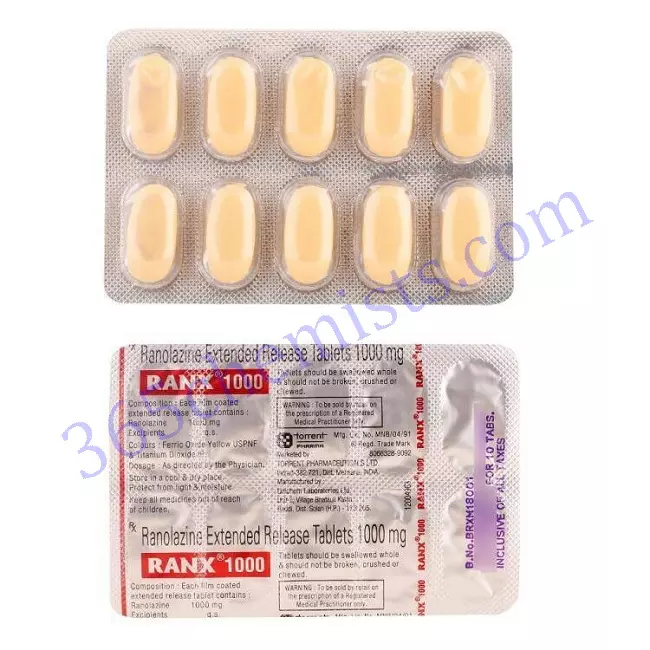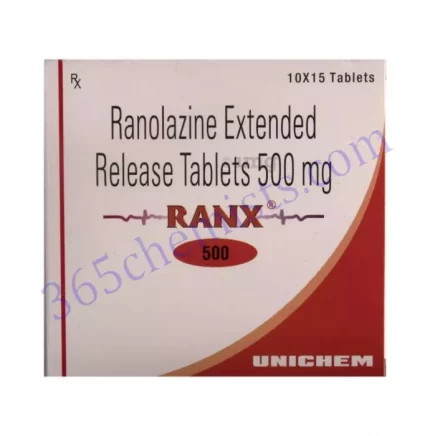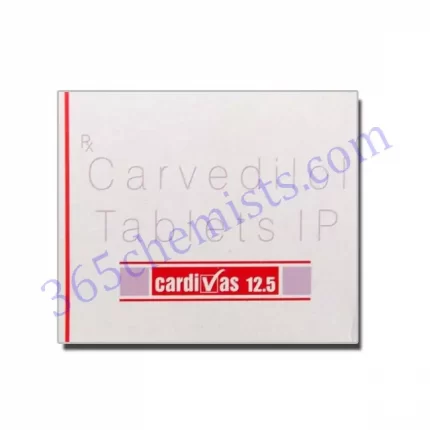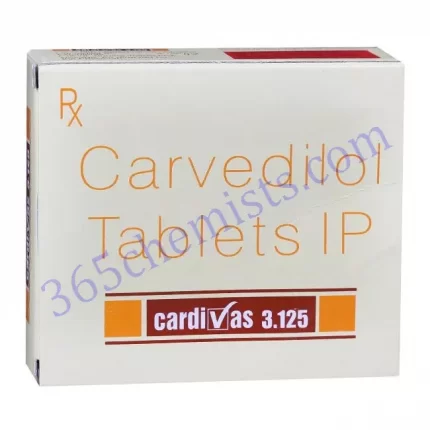Introduction
Ranolazine is the active component of the medication RANX 1000 mg Tablet, which is available from our website. It is categorised as an anti-anginal drug and its primary application is for the management of patients who suffer from chronic angina. RANX is effective because it increases the amount of blood that flows to the heart and decreases the number of times that patients experience angina.
How does RANX 1000mg Tablet work?
In order for the RANX 1000mg Tablet to do its job, the late sodium current in cardiac cells needs to be blocked. This action helps reduce intracellular calcium overload, which ultimately results in improved myocardial relaxation and a reduction in the oxygen demand placed on the heart by the heart. RANX helps relieve symptoms of angina by increasing the amount of blood that flows to the heart and reducing the amount of work that it has to do.
Dosage and Administration
It is possible that the recommended dosage of RANX 1000mg Tablet will change depending on the severity of your condition as well as the unique way in which you respond to treatment. It is essential to ensure that the dosing instructions provided by your healthcare provider are followed to the letter. Your physician will tell you whether to take the tablet with or without food, but it should be swallowed whole.
RANX 1000mg In most cases, the tablet should be taken twice daily, approximately 12 hours apart from each dose. Take the tablet as directed, along with a full glass of water. Do not chew or crush the tablet unless specifically instructed to do so by your chemist or physician.
Related Product
RANX 500MG TABLET
RANX 1000MG TABLET
Precautions and Warnings
Before beginning treatment with RANX 1000mg Tablet, you should discuss any pre-existing medical conditions with your healthcare provider. These conditions may include liver or kidney disease, QT prolongation, or a history of heart rhythm disorders. It is essential that you tell your doctor about any and all other medications you are taking, whether they are prescribed, available over-the-counter, or herbal supplements, because RANX may interact negatively with some of them.
Dizziness and lightheadedness have been reported in patients taking RANX 1000 mg Tablet. Take extreme caution if you must drive or operate heavy machinery until you have a better idea of how this medication will affect you. While taking RANX, it is essential to avoid consuming grapefruit or grapefruit juice because doing so may compromise the effectiveness of the medication. Grapefruit may also interact negatively with RANX.
Possible Side Effects
The RANX 1000mg Tablet, like any other medication, has the potential to cause adverse effects in some people. Dizziness, headache, nausea, constipation, and weakness are some of the more common adverse effects that may occur. These adverse effects are typically mild and only temporary; however, you should notify your healthcare provider if they continue or become worse.
More serious adverse effects, such as abnormal heartbeat, fainting, difficulty breathing, or allergic reactions, have been known to occur in extremely unusual circumstances. Seek immediate medical attention if you experience any side effects that are severe or continue for an extended period of time.
Drug Interactions
There is a possibility that the RANX 1000 mg Tablet could interact with other medications, which could reduce its efficacy or raise the risk of adverse effects. Tell your doctor about any and all medications you are currently taking, whether they are prescribed, available over-the-counter, or herbal supplements. This includes vitamins and minerals as well. Your physician is in the best position to assess any potential interactions between your medications and to make any necessary adjustments to your treatment plan.
Frequently Asked Questions (FAQs)
Q1: Can RANX 1000mg Tablet be taken with food?
A: You can choose to take your RANX 1000mg Tablet with or without food. On the other hand, taking it while you’re eating could help reduce the likelihood of stomach upset.
Q2: Can RANX 1000mg Tablet be used during pregnancy or breastfeeding?
A: It has not been determined whether or not the RANX 1000mg Tablet is safe to take during pregnancy or while breastfeeding. If you are pregnant, breastfeeding, or have plans to become pregnant, it is imperative that you discuss the use of this medication with your attending physician before beginning treatment.
Q3: What should I do if I miss a dose of RANX 1000mg Tablet?
A: If you forget to take a RANX 1000 mg Tablet dose, take the missed dose as soon as you realise it. If, on the other hand, it is almost time for your next dose, you should not take the dose that you missed and instead carry on with your regular dosing schedule. It is not necessary to increase the dosage in order to make up for a missed one.
Conclusion
An effective medication for the treatment of chronic angina is the RANX 1000mg Tablet, which contains the active ingredient ranolazine. It does this by increasing the amount of blood that flows to the heart, which in turn reduces the number of times that angina attacks occur. It is essential to ensure that you comply with the dosage instructions that have been provided by your healthcare provider, as well as provide them with information regarding any pre-existing medical conditions or medications that you are currently taking. Seek medical attention if you experience any side effects that are severe or continue for an extended period of time. Keep in mind that the information presented here is not intended to take the place of professional medical advice, and you should speak with a healthcare provider about the proper diagnosis and treatment for your condition.












